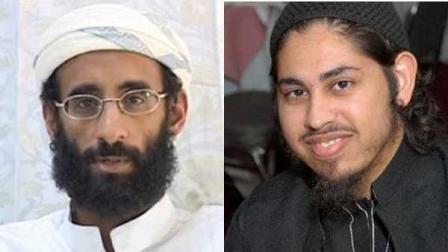Kenya’s private security industry is undergoing radical changes triggered by numerous threats arising from terrorism activities in the country. The firms are struggling to meet new demands that seek to align their operations with those of government security agencies. Police Spokesman Eric Kiraithe said the idea is to ensure that security guards complement police and other agencies like the National Security Intelligence Service and the military in the war against terrorism.
Kenya has been on high security alert since October last year when the military entered Somalia in Operation Linda Nchi, to fight Al-Shabaab. “We need these people (private guards) because some of them are very well-trained and professional. But in the end we need an Act to inculcate professionalism across the board,” said Mr Kiraithe.
Below I have posted two articles that discuss the latest efforts that the Kenyan government is taking in order to work with and regulate their PSC industry in order to better prepare them for counter-terror efforts. The reason why this is important to Kenya is that terrorism has increased in their country and it is a threat to their tourism industry. It is also a threat to the population itself, and thanks to their neighbor called Somalia, they have plenty of pirates and jihadists to deal with.
The company mentioned in this first article is called XFOR Security Solutions. It is a UK company and they are teaming up with police officers from Kenya to train other PSC’s in the country.
He said the Security firms can play a big role in bringing security services closer to members of the public.
“We have carried out training in Nairobi where we meet various security heads from different sectors to educate them on various ways to identify and counter terrorism and we hope to extend the training to North Eastern,” said Mr Lincon-Hope.
The training comes a few months after a French woman and a British Couple were kidnapped while on holiday in Kiwayu, a few kilometres north of Lamu.
Tourism is also a big component of Kenya’s economy, and with so many other threats to their economy, it would make sense that they would try to shore up their security services there. From high oil prices to droughts, Kenya is having to take measures to better their economic prospects. So enter the private security market and the current requirements for protecting the resorts and game reserves.
The second article below talks about the government’s regulatory efforts. Notice how there is more of an emphasis on how to create a system of rules and laws that will make PSC’s more of an asset in Kenya’s efforts to counter terror and crime. That is great, and this is how a government should view their PSC’s–as strategic national security assets, and not as a liabilities.
National Private Security Workers Union secretary-general Thomas Alloyce said:
“Once the law is passed, requirements for one to offer private security will be expanded. Guards will undergo training in bomb detection and disposal, VIP protection and counter- terrorism strategies.”
In the draft stage, the Bill faced hurdles over some proposed sections.
For instance, the issuance of firearms to security guards.
“We are safer when we have as many people out there each with qualifications in certain security areas.”
I wish Kenya well with their efforts and we will see how things go. If any readers have anything to add, feel free to comment below. –Matt

Coast police officer Aggrey Adoli with security staff from various hotels along the coastline after they attended an anti-terrorism training organised by XFOR security Solutions-Kenya on February 13, 2012. Photo/LABAN WALLOGA
Police train private security firms’ staff on explosives in war against terrorism
By ANTHONY KITIMO
February 13 2012
The fight against terrorism continued to gather momentum after the government teamed up with private security firms to seek a joint solution to the crime.
It is seen as a decisive step by the government to restore confidence to tourists following last year’s two abduction cases in Lamu by Somali bandits.
On Monday, the police department promised to work closely with private security firms in Coast Province, particularly along the 600 kilometre coastline to prevent any further terrorists attacks.
A joint training is being conducted in Mombasa, organised by a British based security private firm, XFOR Security Solution and top police officers.
They are gathered at the Nyali Reef Hotel to coach more than 100 participants from different security firms.
Detecting explosives
The trainees will learn various ways of detecting explosives and how to collect intelligence in their respective work places, especially in hotels and other business premises, such as supermarkets.
The merger comes days after a security firm, Brinks Security based in Mombasa aided in the arrest of a British who was taking pictures near the Central Bank, Mombasa branch and various sensitive premises in Mombasa town.
Speaking while opening the training, Coast Provincial Police boss Aggrey Adoli and provincial Anti-Terrorism department head Elijah Rop said the knowledge will ensure private security firms’ employees are conversant with various explosives which might be a threat to the business they offer security services to.
